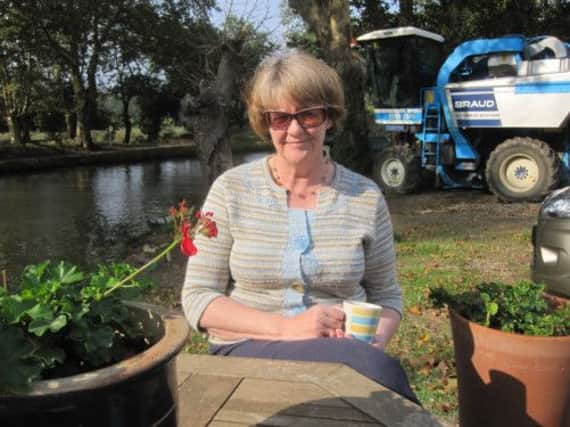Knowing the past helps the future


I was born and adopted in the late 1940s, at a time when there was enormous stigma associated with having a child out of wedlock. Indeed, many mothers were advised or even coerced into putting their child up for adoption. They had little say themselves. Their voices were often silenced.
I have discovered that shortly after I was born, my two grandmothers put their heads together and decided I should be adopted. I would like to think they made their decision in favour of the best outcome, as they saw it, for all concerned.
Advertisement
Hide AdAdvertisement
Hide AdBack in the 1940s and 1950s, adoptive parents had little guidance on how the needs of an adopted child might differ from those of a child brought up by their birth parents. The most obvious need – which was unrecognised – was the need to know where one came from; to get some sense of belonging. In my case, I was told I didn’t need to know. The subject was taboo. Enlightenment about such things came much later.
Adoption could, however, frequently bring advantages. In the adoptive family, living standards might be much better. There might be access to an education which would serve the adopted child well in later life. That is how it was for me, and I am grateful for those advantages.
As a child, though, you live for the present and accept your life as the norm. Apart from being adopted, of course. That sets you apart from your peers. It is only with maturity that you examine what your life was like and what it might have been like had you not been adopted.
I was the kind of adopted child who aimed to please and to conform to their parents’ expectations. In effect, the adoptee became the adaptee. Why was this?
At the age of seven or eight I was told I was adopted. At that time, I spent a lot of time at my friend’s house playing with her and her brothers and sister. I found myself participating in what seemed to me to be a real, proper family and this served to highlight for me what I felt I was missing.
“Why can’t I have brothers and sisters?” I asked my mother.
“Because you are adopted,” was the answer. “Oh, and you don’t tell people that, by the way, it is none of their business. They don’t need to know.”
The message I heard was “adoption = stigma”. There was something shameful about it. I felt I had to be complicit in keeping the secret; otherwise I would incur the wrath of my mother.
“So, where did I come from?” was my next question. “We chose you,” came the answer.
Advertisement
Hide AdAdvertisement
Hide AdTo my child’s mind, it seemed logical that if I had been chosen, I could just as easily be “unchosen”. This thought had a compelling effect on my behaviour. I tried desperately to fit in, to please and conform, at the expense of developing my own sense of self. Only as an adult did I realise how little I knew about myself.
I believe the feeling of belonging comes from being unconditionally accepted for who you are, rather than how you match up to expectations. One cannot be catapulted into any “new” family out of the blue and expect to feel at home. Relationships have to be built and this doesn’t happen overnight. I only felt a genuine sense of connection when I had my own children.
So what have I done about the negatives I associate with being adopted? I set off down the track of self-discovery. The first thing was to trace my birth family, but not before waiting until some years after both my adoptive parents had died.
I made contact with a birth relative who told me my birth mother had emigrated to Australia, married and had a family. I made contact with them, though by this time my birth mother had died.
I also found my birth father. Before we met, we corresponded by handwritten letter and then gradually by phone. When I did meet him, he was a delightful and welcoming 82-year-old who said he wouldn’t mind if I had two heads, as it wouldn’t make any difference to him. This went a long way to making me feel accepted for who I was.
More recently, another positive effect on my life has been my involvement with Birthlink. I originally contacted the organisation when I wanted to search for my birth family. After that, I became a general volunteer, progressing to becoming a volunteer searcher and then a director of the charity. I enjoy helping others involved in adoption.
I believe that finding out about your origins helps you to understand who you are. Gradually, you will have a new sense of identity. For some people, information is enough; for others, there is the need to meet up with the people who have helped create the reality of their existence. There is no right or wrong thing to do. Everybody’s journey is unique.
If we can integrate the myriad strands that combine to make us who we are, then we can go forward as complete human beings.
Advertisement
Hide AdAdvertisement
Hide Ad• Jennifer McNiven is a retired civil servant and former director of Birthlink (www.birthlink.org.uk). She contributed to a recent book, Chosen – Living with Adoption, published by BAAF Adoption and Fostering